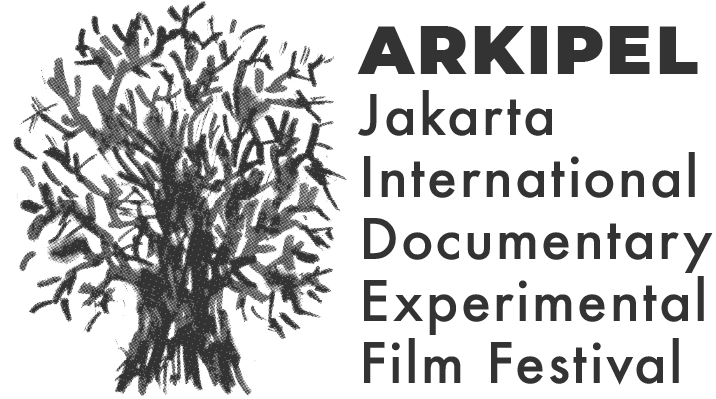Proyeksi sosiologis, yang beranjak dari tradisi diskursif “penologis” dan “filosofis”, mengingatkan bahwa hukuman, sebagai institusi, bukan saja bertujuan instrumental, tetapi juga memiliki gaya kultural dan tradisi historis—yang melaluinya hukuman dibentuk oleh kombinasi kekuatan-kekuatan sosial—yang menentukan cara-cara dalam mengejar tujuannya itu. Bentuknya terus-menerus berubah dan karenanya berpotensi substansial sebagai persoalan aktual. Di era termutakhir, gema ini masih tertandakan dalam suatu frasa yang dalam konteks genealogisnya menunjukkan benang merah antara ideologi-ideologi dari rezim-rezim terdahulu, dan sekarang: “penal colony“. Lewat pengertian arsitektoniknya, frasa ini relevan untuk menafsir perubahan di lingkup global kontemporer, terkait dengan ketiadamungkinan masyarakat untuk lepas dari suatu sistem kontrol. Menyusul keyakinan bahwa kemunculan teks adalah sebuah penanda zaman yang mengukuhkan eksistensi dan legitimasi kekuasaan dalam menundukkan wilayah dan memvonis, Kafka meramalkan pergeseran itu lewat ilustrasi tentang aparatus kekuasaan yang mendesakkan disiplin dengan cara menorehkan vonis di tubuh terhukum. Kafka lantas meruntuhkan mesinnya—yang hadir baik sebagai aparatus maupun representasi dari sistem hukum (atau, penal colony)—untuk mengalegorisasikan proses awal peralihan menuju suatu sistem dominasi baru yang tak lagi membutuhkan mekanisme yang terlihat dan terasa secara fisik.
Kita tengah berada di dalam kondisi faktual dari kegentingan semua bentuk situs berpembatas. Kita telah beranjak dari era analogis—tatanan bahasa universal milik situs-situs itu beserta aparatusnya—dan tengah menghadapi era digital—bahasa tipikal yang membentuk sistem dominan saat ini. Masyarakat Kontrol (yang tanpa batas dan berkesinambungan) telah menggantikan Masyarakat Disiplin (yang maha luas dan terputus-putus). Era kita adalah era modulasi, yang kondisinya selalu mengubah dirinya sendiri dari satu momen ke momen lain, yang mengandaikan “kebebasan” di satu sisi, dan “ketidakbebasan” di sisi yang lain. Lompatan luar biasa dari kecanggihan perangkat-perangkat teknologis telah membuktikan, bahwa ruang-ruang konkret (yang mewajibkan suatu tata aturan dan ritual fisik) melebur menjadi suatu koloni global berupa panopticon gaib. Bukan lagi semata merujuk area terisolir, Penal Colony menggemakan perluasan teritorial dan konseptualnya ketika fenomena multikorporasi lintas wilayah akibat globalisasi, digitalisasi, dan ekspansi jaringan dunia maya membangun situasi multi-kontrol-diri masyarakat dunia.
Di ranah sinema, budaya analog yang mengultuskan kemegahan mekanis sebagai bagian dari ritualitas jasmaniah yang terpusat, semakin terpojok oleh budaya digital dan kenyataan virtual yang menjanjikan kemungkinan untuk menerabas sistem konvensional. Media baru hadir sebagai suatu aparatus yang diinternalisasi ketimbang mesin yang diritualisasikan, yang memungkinkan difusi dan fragmentasi bahasa dan perilaku teknologis. Ruang gelap yang mendisiplinkan subjek pada suatu kondisi diam dan tak bergerak pun, kini telah bertransformasi menjadi dunia tanpa tembok yang tanpa disadari mengontrol setiap tindak-tanduk subjek. Mekanisme regulasi dalam bentuknya yang baru ini, bagaimana pun, masih menyisakan celah-celah mikroskopis bagi penemuan dan penyesuaian estetika dan etika yang jauh lebih disruptif dan eksperimentatif. Bagaimana kemudian spekulasi atas temuan-temuan yang menuntut pemetaan sinematik itu pada akhirnya mampu mengubah cara pandang kita terhadap dunia yang telah divonis sebagai the era of a screen ini?
Sociological projections, which depart from discursive tradition of “penological” and “philosophical”, remind us that punishment, as institution, has not only an instrumental purpose, but also certain cultural style and historical tradition—through which it is shaped by a combination of social forces—that determines the ways in pursuit of its objectives. Its form continuously changes and therefore it has the potential for substantial to be framed into an actual issue. In our latest era, this echo is still signified by a phrase which, in its genealogical context, points out the red-line between ideologies of preceding regimes and of present; such phrase is the “penal colony.” Through its architectonic definition, this phrase has relevant usability in order to interpret a transformation in the contemporary global scope, in relation to the impossibility for society to escape from a system of control. Following the belief that the invention of the text was a milestone which confirmed the existence and legitimacy of power to colonize and to sentence, Kafka augured the changeover through the illustration of the power’s apparatus that imposed discipline by inscribing a sentence on the condemned’s body. Kafka then broke down his writing machine—which existed both as apparatus and a representation of the penal system (or, the penal colony) itself—to allegorize the initial process of transition that lead us to a new system of domination which no longer requires a physical and visible mechanism.
We are now in the midst of factual crisis of all sites of confinement. We have already moved from the era of analogical—a rule of universal language that belongs to such sites and their apparatus—and are facing the era of digital—a typical language that shapes the current dominant system. The Society of Control (which is continuous and limitless) has replaced the Disciplinary Society (which is discontinuous and infinite). Our era is the era of modulation that is continuously transmuting itself from one moment to another, which presupposes the “freedom” on one hand, and the “unfreedom” on the other. A tremendous leap of sophistication of technological devices has proven that the concrete spaces of enclosure (that prescribe a system of certain regulations as well as physical rituals) fuse into global colony in the form of cryptic panopticon. No longer as simply a term referring to the isolated areas, the Penal Colony echoes a kind of territorial and conceptual expansion when the phenomenon of inter-regional multicorporations as a result of globalization, digitalization and expansion of cyberspace networking creates a self-multicontrol situation of global society.
In the realm of cinema, the culture of analog that adores the mechanical splendor as part of a centralized corporeal spirituality is increasingly cornered by the culture of digital and virtual reality that promises many possibilites for breach of conventional system. The new media exists as internalized apparatus rather than ritualized machinery, which enables diffusion and fragmentation of language and technological behaviour. The dark room which is disciplining the subjects on a silent, fixed condition and immobilisation, has now also been transforming into an unbound world that unconsciously control each of acts of the subjects. A new form of this regulatory mechanism, however, still leaves microscopic apertures to the discovery and adjustment of aesthetic and ethics which are much more disruptive and experimental. How are then speculations over the findings that require cinematic mapping finally able to change the ways we gaze this world, which has been convicted as the era of a screen?

